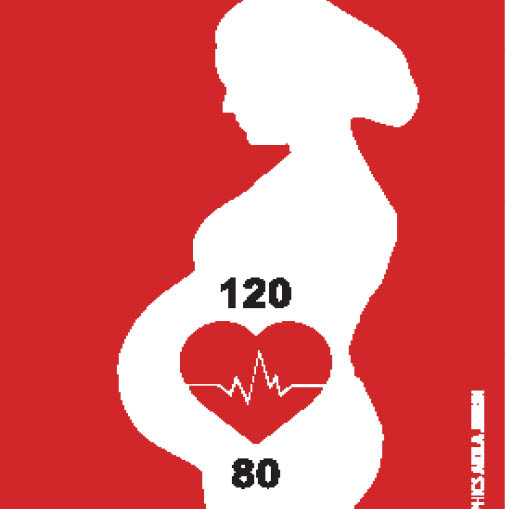Nigeria has one of the worst maternal and child mortality indices in the world.
According to the 2018 Nigeria Demographic and Health Survey (2018 NDHS), the country’s Maternal Mortality Ratio (MMR) is 512 deaths per 100,000 live births.
- Tinubu deserves to be next president – Emir of Ilorin
- Accept aspirants’ money, vote wisely – Peter Obi
The reduction rate of these deaths has been slow, according to experts, as many of the contributory factors remain unaddressed. This in turn has a negative impact on family health and child survival.
They say it is good for the country to reduce its MMR from 512 per 100, 000 live births to 72 per 100,000 live births and to attain zero maternal deaths by 2030.
Maternal mortality is the death of a woman while pregnant or within 42 days of termination of pregnancy irrespective of the duration and site of the pregnancy from any cause related to or aggravated by the pregnancy or its management, but not from accidental or incidental causes.
MMR: This the annual number of female deaths per 100,000 live births from any cause related to or aggravated by pregnancy or its management (excluding accidental or incidental causes).
According to UNICEF in its situation of women and children in Nigeria report, the country’s 40 million women of childbearing age (between 15 and 49) suffer a disproportionally high level of health issues surrounding birth.
“While the country represents 2.4 per cent of the world’s population, it currently contributes 10 per cent of global deaths for pregnant mothers. The latest figures show an MMR of 576 per 100,000 live births, the fourth-highest on earth.
“Each year, approximately 262,000 babies die at birth, the world’s second-highest national total. Infant mortality currently stands at 69 per 1,000 live births, while for under-fives it rises to 128 per 1,000 live births. More than half of the under-five deaths – 64 per cent – result from malaria, pneumonia or diarrhoea,” the organisation said.
UNICEF said investment in this sector had been high in recent years although the proportion of patients able to access appropriate treatment remained low.
The causes of maternal mortality are haemorrhage (bleeding after childbirth), infection, eclampsia, unsafe abortion, obstructed labour, malaria and anaemia.
Other factors associated with maternal mortality include low health-seeking behaviour, poor emergency obstetric services, harmful traditional practices, high out-of-pocket expenditure on health care and poor transportation.
The NDHS 2018 data showed that two-thirds of women aged between 15 and 49 receive antenatal care (ANC) from a skilled provider (doctor, nurse, midwife or auxiliary nurse/midwife), but most commonly from a nurse/midwife (48 per cent).
It further showed that 59 per cent of births are delivered at home, while nearly four in 10 births (39 per cent) are delivered in a health facility, primarily in public sector facilities.
Postnatal care helps prevent complications after childbirth. However, the NDHS data showed that more than four in 10 (42 per cent) women age between 15 and 49 received a postnatal check within two days of delivery, while 56 per cent did not have a postnatal check within 41 days of delivery.
The Minister of Health, Dr Osagie Ehanire, said adolescents contributed 40 per cent to Nigeria’s high MMR.
He said the federal government, in collaboration with partners, launched the Reproductive, Maternal, Newborn, Child, Adolescent and Elderly Health, plus Nutrition Multi-Stakeholders Partnership Coordination Platform (RMNCAEH+N MSPCP) last year as part of effort to reverse the unacceptably high burden of maternal, newborn and child mortality.
He said the provision of emergency transport alone had been demonstrated to reduce maternal mortality by as much as 50 per cent.
Prof Abubakar Panti of the Department of Obstetrics and Gynaecology, Usmanu Danfodio University Teaching Hospital (UDUTH), Sokoto, said women in developing countries continued to die because they lacked access to contraception.
He said maternal mortality rates were particularly high for young and poor women; those who had the least access to contraceptive services.
According to him, “It is estimated that one in three deaths related to pregnancy and childbirth could be avoided if all women had access to contraceptive services.”
A social development expert, Mabel Adinya Ade, who is also Executive Director of Adinya Arise Foundation, said the government should pay more attention to pregnant women, adding that, “When proper attention is given, the worst complication comes out with positive result.”

 Join Daily Trust WhatsApp Community For Quick Access To News and Happenings Around You.
Join Daily Trust WhatsApp Community For Quick Access To News and Happenings Around You.


